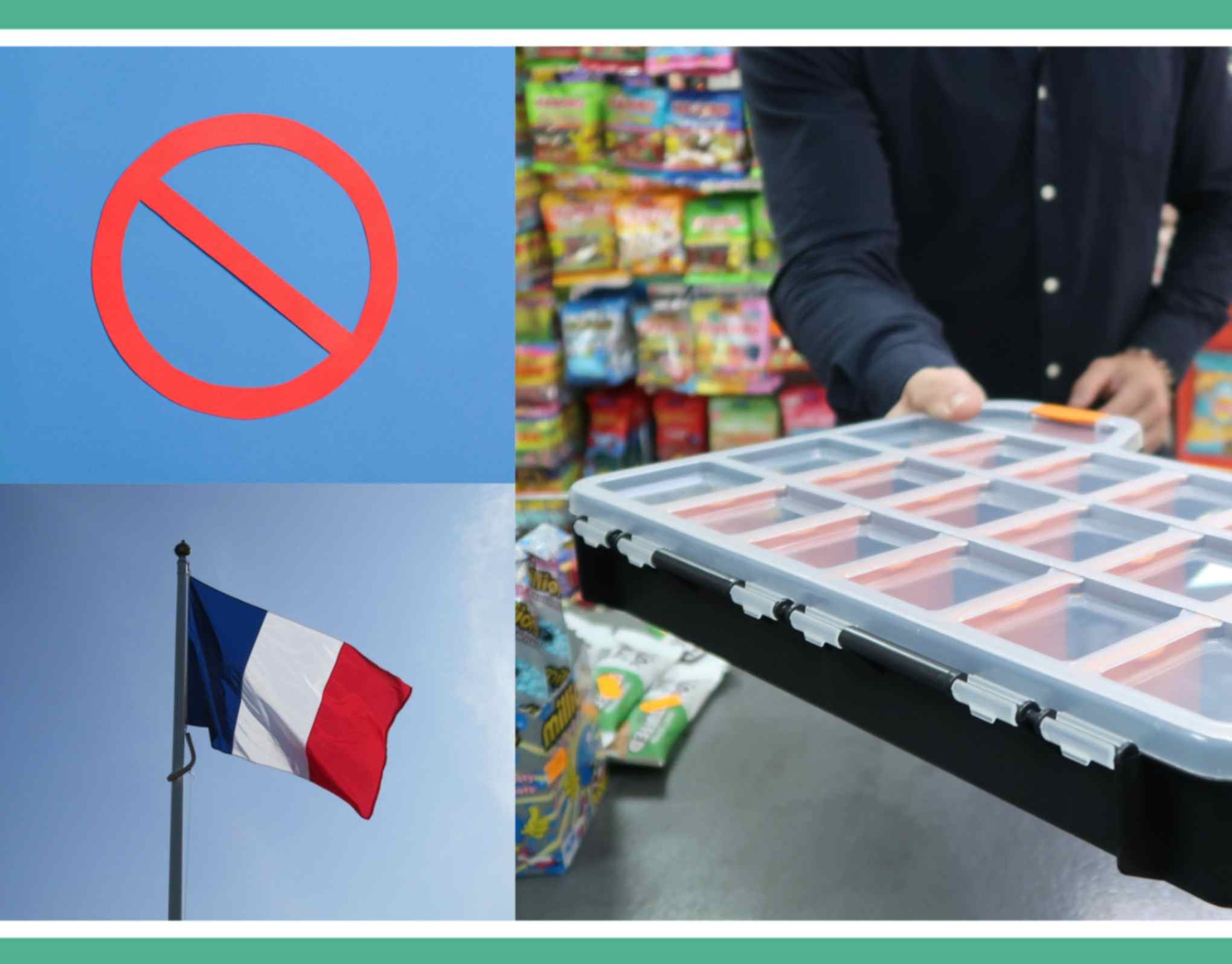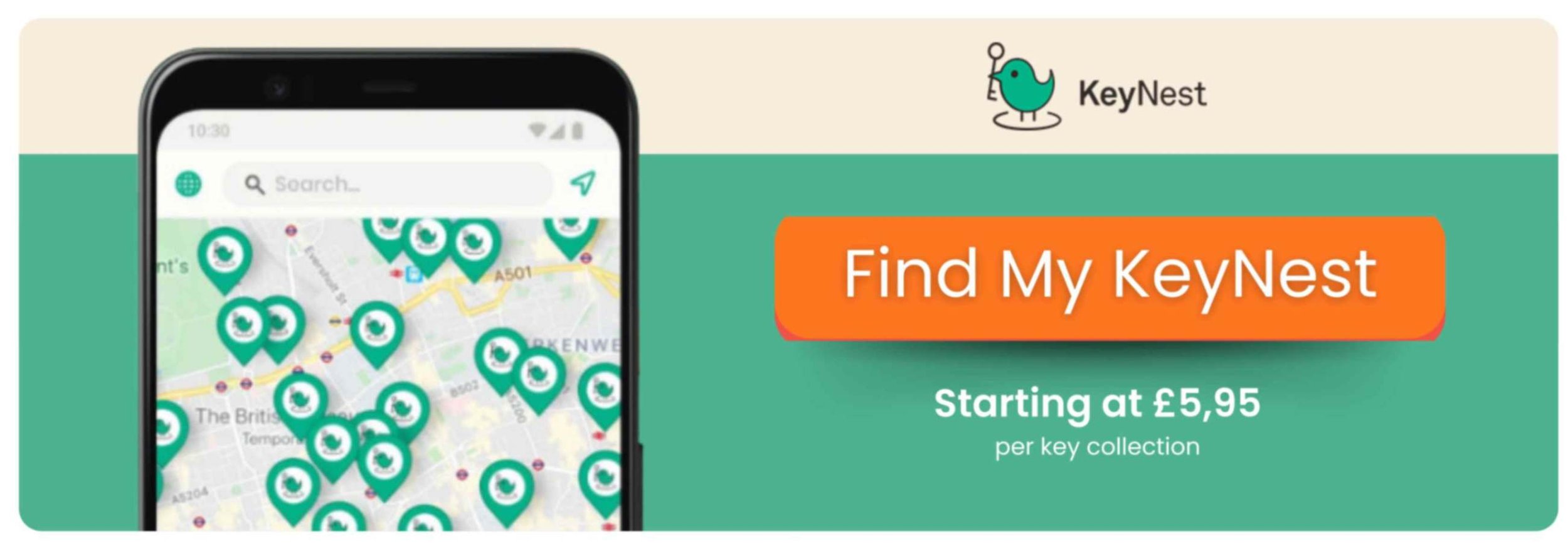Over 1500 key exchange locations nationwide
City Of Nice Bans Key Boxes For Short-Term Rental Regulation
The vibrant French city of Nice, one of the most world's most visited accommodation destinations on the French Riviera, has recently implemented a significant change that could impact property managers of holiday lets. The local government has passed a law banning the use of key boxes, commonly used by property managers to facilitate the check-in process for vacationers and guests. The move comes as part of a broader effort to regulate holiday lets in the city, where the popularity of platforms like Airbnb has increased rapidly in recent years.
This regulations may be aimed at addressing growing concerns over security, local rent housing availability and the increasing number of unregistered rentals in residential areas. By limiting the use of key boxes, the government hopes to ensure that furnished tourist accommodation operations are better monitored and that the safety of both guests and local residents is prioritized. This decision has sparked a heated debate about the future of holiday let regulations in popular tourist destinations.
For UK property hosts in Nice or those considering expanding to the city, this change is a crucial development that could affect business practices and operational logistics on the short-term rental market. Let’s dive into the comprehensive guide of the rules and regulations of this ban and what it means for property owners in the region.
Why Did The Mayor In The City Of Nice Ban Key Boxes?
The primary reason for the ban is the city’s effort to tighten regulations around holiday lets. Keyboxes have become a common tool for property owners, offering a convenient and often secure way for guests to access their accommodations. However, concerns have been raised about the lack of oversight when it comes to the distribution of keys. The local authorities argue that these key boxes make it easier for unregistered guests to enter Airbnbs without proper checks. Moreover, key boxes can be vulnerable to theft or misuse, especially when not monitored closely.
In a city like Nice, which sees millions of tourists each year, maintaining control over who is entering properties has become increasingly important. The government aims to ensure that only registered tourist rental operators are using these tools, ultimately trying to reduce illegal rentals that contribute to the housing crisis.
Key Points to Know:
Main Issue: Lack of oversight and security risks.
Goal: Regulate and monitor holiday let operations more effectively and for prime residents to have quality of life.
Primary Concern: Unregistered rentals and unauthorized access.
Safety: Prevent theft or misuse of key boxes.
Impact on Property Hosts: Adjustments to check-in procedures.
Urban Housing Crisis: The move helps address local housing shortages.
Tourism Regulation: Part of broader efforts to control the influx of tourists.
How This Affects Airbnb Hosts In Nice?
For property owners, this ban means they will need to adapt their operations to comply with new regulations. Traditionally, the installation of key boxes provided an efficient way for property owners to allow tenants to check in, especially when there were concerns about schedules or last-minute bookings. With this ban, property owners will likely need to explore alternative methods, such as using in-person check-ins or secure digital access methods. This could create challenges for property owners who operate multiple units or are located remotely from their properties.
Additionally, the cost of implementing new systems might add financial strain on smaller rental operators. While the ban is primarily intended to regulate rentals, it will also likely create complications and removal of future vacation apartment rentals for those seeking to scale their operations in Nice.
Key Points to Know:
Operational Changes: Move to in-person or digital check-ins.
Challenges: Increased logistical complexity for remote property owners.
Cost Implications: New systems and procedures could be expensive.
Effect on Small Operators: Increased strain on small property owners.
Scalability Issues: Difficulties in managing multiple units.
Impact on Guest Experience: Potential delays or inconvenience in check-in.
Security Measures: Need for secure alternatives to key boxes.
Alternatives To Key Lock Boxes For Property Managers To Install
With the new regulations in place, property owners will need to consider various alternatives to key boxes. One option is using smart locks, which allow tenants to check in using their smartphones, eliminating the need for physical keys. These smart locks can be programmed with temporary access codes, ensuring that only tenants with valid reservations can enter. Another option is working with local concierge services or property owners who can provide in-person check-in services.
Although this may seem less convenient than key boxes, it ensures that tenants are properly vetted, and security is enhanced. Additionally, property owners may explore partnering with services that specialize in key handovers or key box systems that are in adherence with local laws. However, these options may involve additional costs, which could impact overall profitability.
Key Points to Know:
Smart Locks: Digital locks that use access codes for security.
Concierge Services: In-person check-ins ensure better oversight.
Increased Security: Alternative solutions offer enhanced protection.
Key Handover Services: Local partnerships for key distribution.
Added Costs: Implementation of new systems may be costly.
Compliance: Ensure that any new methods comply with local laws.
Efficiency vs. Convenience: Weigh the trade-offs for property owners.
The Future Of Short-Term Rental Regulations In Nice
Nice’s decision to ban key lock boxes is just one part of an ongoing trend of stricter short-term rental regulations across Europe. Cities like Paris, Amsterdam, and Barcelona have already implemented similar measures, and other popular tourist destinations may follow suit. As the number of short-term rentals grows, local governments are increasingly looking for ways to regulate the market while balancing the needs of tourists and residents.
For property owners in Nice, staying informed about these changes is critical. Local laws may continue to evolve, requiring property owners to be adaptable and proactive in ensuring compliance.
Key Points to Know:
Broader Trend: Stricter short-term rental laws across Europe.
Other Cities: Paris, Amsterdam, and Barcelona have implemented similar rules.
Future Regulations: Potential for further restrictions in Nice.
Need for Adaptability: Property owners must stay informed about changes.
Local Laws: Focus on compliance to avoid penalties.
Market Balance: Efforts to balance tourism and local needs.
Long-Term Planning: Proactive strategies are necessary for continued success.
Navigating The New Landscape Of Short-Term Rentals In Nice
The prohibition of key lock boxes in Nice marks a significant shift in how short-term rentals will be managed in this popular French city. For property owners, this change presents both challenges and opportunities. While adapting to new systems may incur additional costs and logistical hurdles, it also offers a chance to enhance security and provide a more controlled, tenant-friendly experience. As short-term rental regulations continue to evolve in Nice and beyond, property owners must remain agile, keeping up with new laws and technologies that can help streamline operations and maintain compliance.
The future of short-term rentals in Nice will likely depend on how well property owners adapt to these changes while balancing profitability and tenant satisfaction. By embracing secure alternatives and staying ahead of regulatory trends, property hosts can continue to thrive in this dynamic market. Those who can successfully navigate this regulatory shift may even find themselves ahead of the competition.
Staying informed, adopting secure practices, and complying with local laws will be key to sustaining success in the evolving landscape of short-term rentals in Nice.
About Us
KeyNest offers you a convenient service for storing and exchanging your property keys. You can drop off a key at any of the 7,000+ locations in our network, so there’s one such Point located next to your property.
Guests, cleaners or contractors can then collect the key securely from a KeyNest Point or KeyNest Locker which is usually open 24/7. You'll be notified each time the key is picked up or returned, and you can even customize check-in and check-out times. By leveraging technology and a global network of locations, KeyNest continues to redefine property management, offering solutions tailored to meet the evolving needs of the rental market..
KeyNest has an ever-expanding global network of locations located just minutes from your property. To find out more you can contact us.
Neil Beltran 11 February 202



